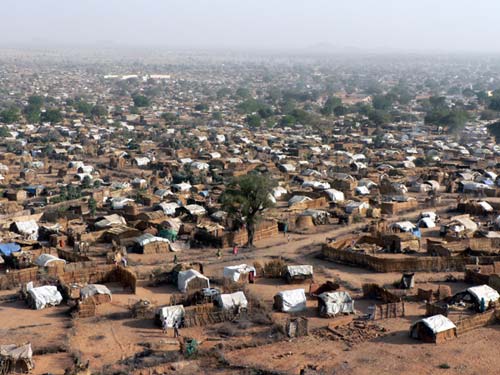By Zhou Jing
On March 5, the Sudanese government announced a decision to expel 13 foreign NGOs operating in Darfur, accusing them of passing "false and fabricated information" to the International Criminal Court, a charge denied by the relief agencies.
The decision came one day after the ICC issued an arrest warrant against the Sudanese president for alleged war crimes in Darfur. The Sudanese government shows no sign of backtracking on the expulsions despite mounting pressure from the United Nations and western countries.

|
|
MSF has been working in Darfur, Sudan since 2003. MSF provides medical care, mental health services and basic necessities including food and clean drinking water to internally displaced populations affected by ongoing conflicts in Darfur. With the expulsion of two MSF sections, plus the remaining sections can only provide limited services in Darfur, the vast needs of the population in Darfur left unaddressed.[Photo: MSF]
|
Among those expelled were Médecins Sans Frontières (MSF) teams working in Darfur, a source with the MSF told china.org.cn.
Lydia Geirsdottir worked as the MSF Project Coordinator in Kalma Camp for nine months before returning to Iceland after the expulsion. She expressed her concern that the expulsion will affect the tens of thousands of people living in one of the world's largest internally displaced people's (IDP) camps.
Kalma Camp covers about six square kilometers and houses between 90,000 and 100,000 displaced people. The majority of medical staff working in the camp are Sudanese people who are IDPs themselves, Geirsdottir said, adding "we also had a more qualified medical team commuting from the nearby town of Nyala, made up of both international and Sudanese staff from other parts of the country, including doctors, nurses, consultant nurses and midwives."
"We were treating anything from basic healthcare issues through to cases of obstructed labor and really serious diseases like chest infections, pneumonia, malaria and meningitis," Geirsdottir said.
She is very worried about a meningitis outbreak in the camp that was confirmed by the Sudanese Ministry of Health the day before their expulsion. "Right now there is no treatment available in the camp, no one to refer patients to the hospital in Nyala, and no mass vaccinations. It means that people may die," She said.
Eric Jeunot, who served as MSF's program manager in Zalingei, western Darfur, for seven months, said that, since December 2003, MSF had been providing medical aid in this city of 130,000, whose population includes 100,000 displaced persons. "I can hardly believe it (the expulsion). I can see the dozens of patients who came to the clinic in the displaced persons' camp at Hassa Hissa every day. Now when they arrive, the door will be closed."
Jeunot's team had two nutritional clinics for severely malnourished children. He said they provided free care in the hospital departments, but now patients might be required to pay, which is particularly worrying as they have very little money. "And there's also the medical staff, who will no longer receive bonuses from us. They could be less motivated to continue working in the hospital," he added.